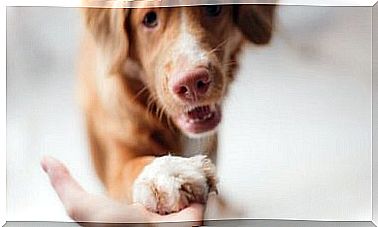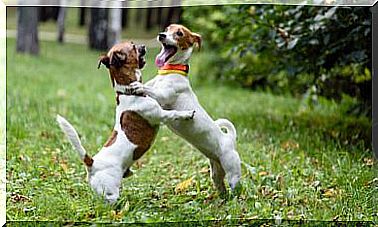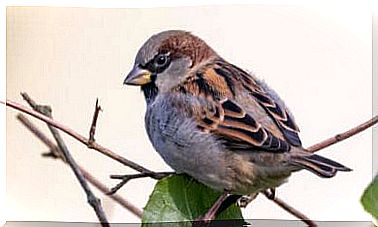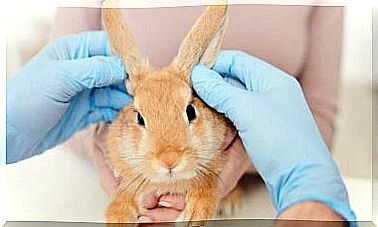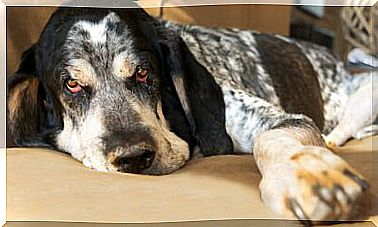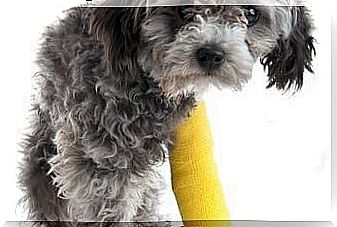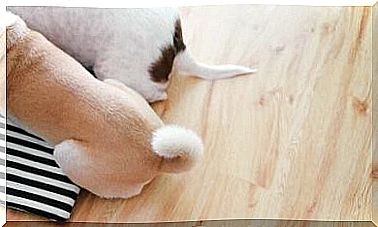Dog Kisses In Times Of The Coronavirus: Are There Any Risks?
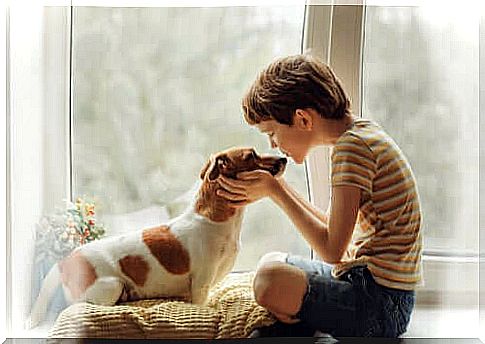
Dog kisses have the power to heal some wounds. It has been scientifically proven that pets, especially dogs and cats, can help reduce stress, anxiety, and depression. Their society helps people cope with loneliness, encourages physical activity, and can even improve cardiovascular health.
However, concerns have emerged recently as to whether pets could play a role in the transmission of COVID-19.
On February 11, 2020, this virus was officially named SARS-CoV-2. The illness caused by this virus is known as “Coronavirus Disease 2019” (“COVID-19” for short). In today’s article, we’re going to summarize the information available so far.
Dog kisses and coronavirus: is there a risk of infection with COVID-19?
According to the World Organization for Animal Health (OIE), the current spread of COVID-19 is the result of human-to-human transmission. In addition, this organization has emphasized that from today’s perspective there is still no clear evidence that pets can transmit this disease.
As a result, there are no valid reasons for taking action that could affect the welfare of our pets. Current evidence suggests that COVID-19 was transmitted from wildlife to humans. However, these investigations are still ongoing.
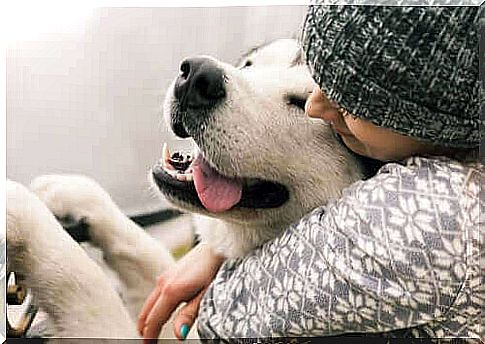
Are there any dogs that have tested positive for the coronavirus?
Yes, on March 1, authorities reported that a pomeranian pomeranian tested positive for COVID-19 and other viruses in Hong Kong. The animal was examined after its owner was previously infected with the coronavirus and became ill.
Doctors took samples from the dog’s nose, mouth, and rectum. They also had his bowel movements checked in the laboratory. However, only the nasal and oral samples gave positive corona results and showed traces of the coronavirus.
However, the doctors emphasize that this does not necessarily mean that the dog was actually infected. Further samples, which were taken two days later and also tested, again gave positive results. Although the animal showed no symptoms, the animal was placed in quarantine.
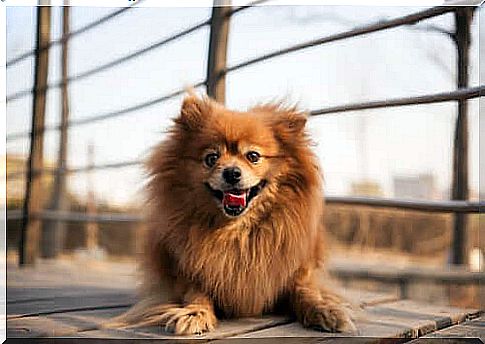
We should mention that the pomeranian did not show any clinical signs of disease. In addition, veterinarians carried out a blood test on the animal, which also had a negative result. This result is an indication that there was no measurable amount of antibodies in the blood at this point in time.
The World Organization for Animal Health OIE states that “there is no evidence that dogs play a role in the spread of this human disease or that they can potentially get it”.
In addition, the World Association of Small Veterinarians (WSAVA) says that “there was a small amount of COVID-19 virus RNA in the samples” and that it is not clear whether these particles are infectious or have no ability to spread.
There is currently no evidence that pets such as dogs and cats have infected humans with COVID-19. The virus is only transmitted from person to person.
Is it a good idea to limit dog kissing and contact with your pet while in isolation?
The World Animal Health Organization (OIE) advises that you should avoid contact with your pet if you are infected with the virus or are in one of the risk groups for COVID-19 infection. In addition, the Chinese authorities have warned infected people not to exchange dog kisses with their four-legged friend. In these cases another member of the household should take care of the pets.
However, if a sick person has no other option and has to look after the pet himself, he or she should take all necessary hygiene measures and ideally wear a face mask. You can find more information about animal health during the pandemic on the OIE website or, for example, in this leaflet from the German Animal Welfare Association.
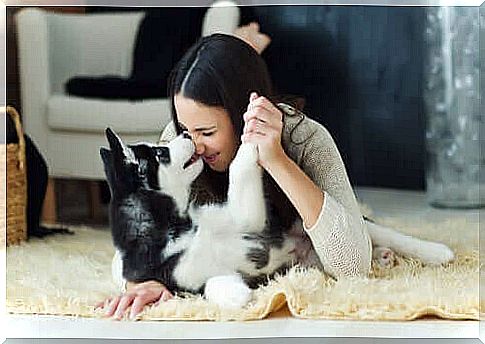
What precautionary measures do the authorities recommend?
If people have COVID-19, they should also tell health authorities that they have pets at home.
Here are some general recommendations:
- If possible, you should delegate the care of the pet to another member of the household.
- In addition, you should only take short walks so that the animal can relieve itself.
- In addition, you should always keep the dog on a leash during the entire walk.
- Avoid contact with other people or dogs.
- Fill a water bottle with vinegar and water to wash away the urine. In addition, you should of course also use dog waste bags.
- Basically, experts recommend that you wash your hands thoroughly after touching an animal, because saliva can also contain other germs and viruses, even if the coronavirus is not a problem.
Dog kisses in times of the coronavirus: final remarks
According to the OIE, you don’t have to worry about your pet getting COVID-19 or being a carrier of this virus. There is simply not enough evidence that animals can develop this infection as well. Therefore, dog kisses are now considered harmless.
The COVID-19 virus appears to specialize in spreading among humans and therefore transmission to dogs and cats is very unlikely. Therefore, you shouldn’t be afraid to enjoy your pet’s company.
Many of the viruses, including the common cold virus, cannot be transmitted between pets and humans. Pets have different cell receptors than humans. These prevent some human-transmitted viruses from settling in your system and causing them to become infected.
Viruses are basically species-specific and this is also the case with canine coronavirus. We hope you find the information in this article helpful and we wish you continued good health!
